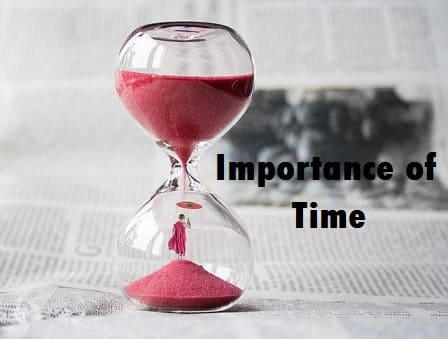Time is a finite and invaluable resource that shapes our lives and opportunities. Its importance lies in its irreplaceable nature and the fact that it cannot be regained once lost. Effectively managing time enables productivity, personal growth, and the fulfillment of goals. Recognizing its significance empowers individuals to make the most of every moment and prioritize meaningful endeavors. Let’s explore more about importance of time in this essay.

Essay on Importance of Time
Time is an invaluable resource that impacts every aspect of our lives. It is a finite asset, and how we manage and utilize it plays a crucial role in determining our efficiency, productivity, and overall success. Lets explore the significance of time, discuss the benefits of effective time management, and provide practical tips for optimizing our use of this precious resource.
Maximizing Productivity
Time management is essential for maximizing productivity. By organizing tasks, setting priorities, and allocating specific time slots for each activity, individuals can make the most of their available time. Effective time management allows us to focus on important tasks, avoid procrastination, and achieve more in less time.
Meeting Deadlines and Goals
Time management enables individuals and organizations to meet deadlines and achieve their goals. By establishing realistic timelines and breaking down larger tasks into manageable chunks, individuals can work systematically towards their objectives. Proper time management ensures that tasks are completed on time, reducing stress and increasing overall efficiency.
Improved Decision-Making
Time management plays a vital role in decision-making. When we have a clear understanding of our priorities and available time, we can make informed choices about how to allocate our resources. By considering the time required for each option, we can evaluate trade-offs and make decisions that align with our goals and maximize the use of our time.
Work-Life Balance
Effective time management contributes to achieving a healthy work-life balance. By allocating time for work, personal pursuits, and leisure activities, individuals can prevent burnout and maintain overall well-being. Time management allows us to devote quality time to our relationships, hobbies, and self-care, leading to a more fulfilling and balanced life.
Opportunities for Growth and Learning
Proper time management creates opportunities for personal and professional growth. By dedicating time for continuous learning, skill development, and self-improvement, individuals can stay relevant and adapt to evolving circumstances. Time allocated for growth activities, such as reading, attending workshops, or pursuing further education, can result in expanded knowledge, enhanced capabilities, and increased career prospects.
Reduced Stress and Improved Mental Health
Effective time management helps reduce stress and promotes better mental health. When individuals have control over their time and manage it efficiently, they experience less pressure and anxiety. By setting realistic goals, prioritizing tasks, and allocating time for relaxation and self-care, individuals can maintain a healthy work-life balance and prevent overwhelm.
Practical Tips for Effective Time Management
a) Set Clear Goals: Define specific, measurable goals to provide a sense of direction and purpose.
b) Prioritize Tasks: Identify and prioritize tasks based on their urgency and importance.
c) Plan and Schedule: Create a daily or weekly schedule to allocate time for each task and avoid time wastage.
d) Avoid Procrastination: Tackle challenging tasks first and break them down into smaller, manageable steps.
e) Delegate and Outsource: Learn to delegate tasks that can be handled by others and consider outsourcing non-core activities to save time.
f) Eliminate Time Wasters: Identify and eliminate activities or habits that consume excessive time without providing significant value.
g) Learn to Say No: Prioritize your commitments and learn to say no to tasks or requests that do not align with your goals or values.
h) Take Breaks: Allow yourself regular breaks to recharge and maintain focus and productivity.
i) Learn from Experience: Reflect on your time management practices, identify areas for improvement, and adjust your approach accordingly.
Conclusion
Time is a precious resource that should be valued and managed effectively. By practicing good time management, individuals can enhance their productivity, meet deadlines, make better decisions, achieve work-life balance, and foster personal growth. It is crucial to develop the discipline and skills necessary to optimize the use of time, ensuring a more fulfilling and successful life. Remember, time once lost cannot be regained, so make the most of it today.
